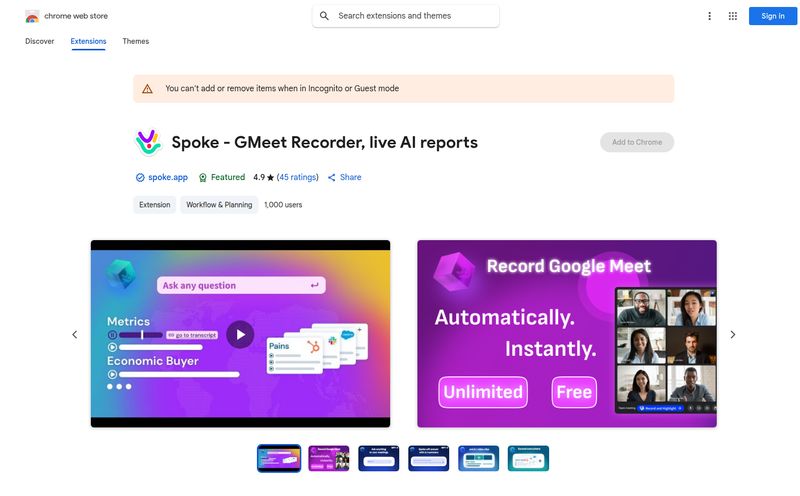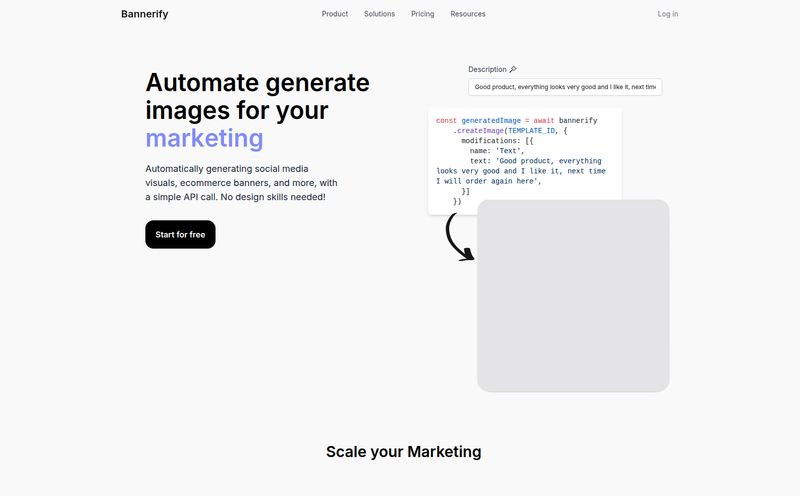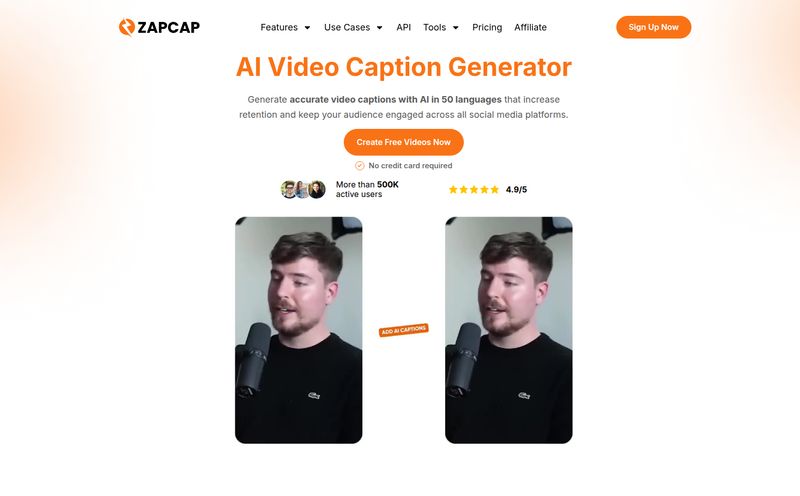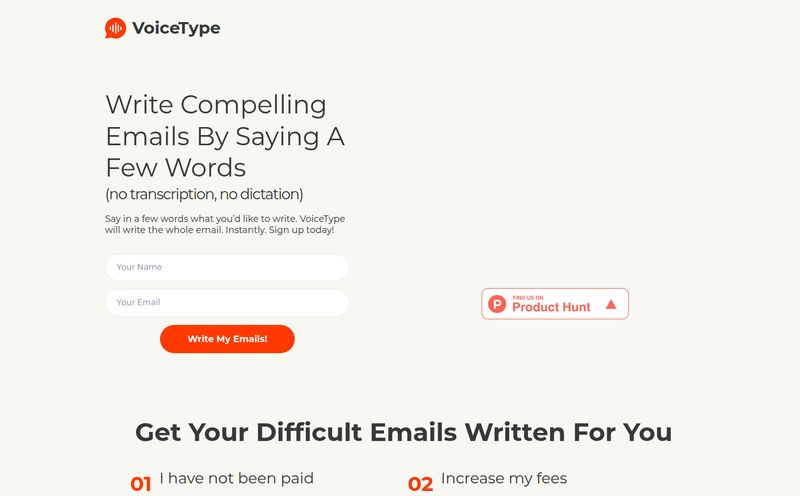For years, we've been told that data is the new oil. In healthcare, it feels more like the new... swamp. It's everywhere, it's deep, and it’s a murky mess of doctor’s notes, lab results, imaging reports, and scribbled prescriptions. We have mountains of valuable information trapped in unstructured text, and trying to make sense of it is a monumental task. I’ve seen teams of brilliant people spend months, even years, trying to manually extract meaningful patterns. It’s slow, expensive, and frankly, soul-crushing work.
So, whenever a company comes along claiming to have a magic wand for this exact problem, my inner cynic sits up and pays attention. The latest to cross my desk is Insights AI. They're not just another generic AI platform; they're specialists, diving headfirst into the chaotic world of healthcare with Natural Language Processing (NLP).
Their big, bold claim? They’ve built an LLM, which they call Omniview, fine-tuned on a whopping 30 million patient charts. That’s not a typo. 30 million. That's the kind of number that makes you either roll your eyes or lean in a little closer. I decided to lean in.
So, What Exactly is Insights AI?
At its core, Insights AI is a service provider and a tech platform designed to read and understand complex medical documents. Think of it as a brilliant, tireless medical resident who can read millions of pages without needing a coffee break. They offer a whole suite of solutions aimed at taking that unstructured swamp of data and turning it into clean, structured, and actionable insights.
This isn't just about finding keywords. It's about understanding context, relationships, and medical terminology. It’s for the hospitals trying to predict patient outcomes, the researchers searching for new drug candidates, and the insurance companies trying to streamline claims. I even spotted a “Veterinary Care Solution” on their site, which is a fascinating and often overlooked market. Your dog's medical records are probably just as messy as yours.
Their whole operation is built around their proprietary Omniview LLM. This is their secret sauce. By training it specifically on medical data, the idea is that it avoids the weird, sometimes dangerously wrong, ‘hallucinations’ a general-purpose AI like ChatGPT might have when asked to interpret a pathology report. In medicine, accuracy isn't just nice to have; it's everything.
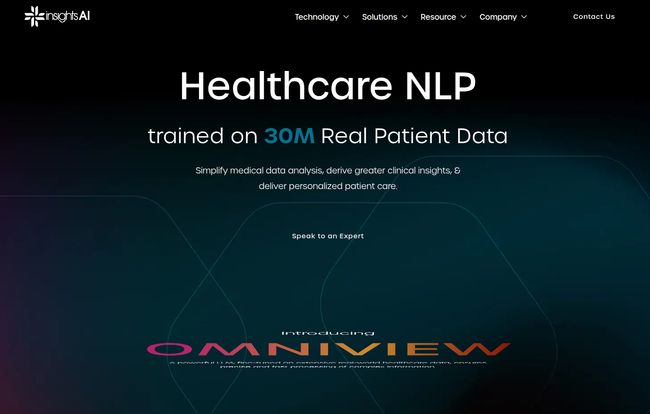
Visit Insights AI
Peeking Under the Hood at the Technology
Okay, so “advancing healthcare innovation” sounds great on a homepage, but what are the actual tools in the toolbox? It seems to be a mix of foundational tech and specialized applications.
From Paper to Pixels with OCR
First things first, a lot of medical history is still on paper or locked away in scanned PDFs. Their Optical Character Recognition (OCR) is the first step, digitizing these documents. It’s not the sexiest part of the process, but without it, you’re dead in the water. Getting this right is table stakes.
Making Sense of the Chaos with NER
This is where it gets interesting. Once you have the text, Named Entity Recognition (NER) comes in. This is the AI's ability to act like a smart highlighter, identifying and categorizing key pieces of information. It finds the ‘patient name,’ flags the ‘medication,’ isolates the ‘symptom,’ and extracts the ‘diagnosis.’ This is what transforms a wall of text into a structured database you can actually query and analyze.
The All-Important Clinical APIs
Insights AI also integrates with standard medical coding systems like SNOMED CT, RxNorm, and ICD-10-CM. For the non-healthcare-nerds out there, these are the universal languages of medicine. It means the platform isn't just extracting words; it's mapping them to standardized codes. This is absolutely critical for interoperability and large-scale analysis. It shows they've done their homework.
The Big Deal About Privacy and Compliance
Now for the elephant in the room with any healthcare tech: privacy. Patient data is some of the most sensitive information on the planet. A data breach isn't just an inconvenience; it can be a life-altering disaster. I was genuinely pleased to see how front-and-center Insights AI puts this.
They prominently display their compliance with HIPAA (the American standard) and GDPR (the European standard). But they go a step further with what they call “Safe Harbor De-identification.” This is the process of stripping out all personally identifiable information (name, address, social security number, etc.) so that the core medical data can be used for research without compromising who the patient is. It’s an ethical and legal tightrope, and it looks like they have the right safety nets in place.
The Good, The Bad, and The... Opaque
No tool is perfect, right? After digging around, here’s my breakdown of what gets me excited and what gives me pause.
First, the good stuff. The single biggest standout for me is their fixed-cost model. In a world where every other AI company wants to charge you per API call or per document processed, this is a breath of fresh air. It offers budget predictability. For a hospital CFO or a research grant manager, knowing exactly what your costs will be for the year is a massive, massive win. This could genuinely lower the barrier to entry for some organizations.
Another huge plus is the option for on-premise hosting. While cloud is the default for many, major health systems are often (and understandably) wary of letting their most sensitive data leave their own firewalls. Offering a solution that can run within the client's own environment shows a deep understanding of the market's security posture.
Now, for the things to consider. The most obvious one is the pricing mystery. There's no pricing page. To get a number, you have to “Speak to an Expert.” This is pretty standard for enterprise B2B software, but it's a personal pet peeve. It signals that this is likely a high-touch, high-cost solution tailored to each client. Small clinics or individual researchers probably need not apply. You can’t just swipe a credit card and get started.
My other hesitation is the reliance on the proprietary Omniview LLM. While a specialized model is great for accuracy, it's also a bit of a black box. You have to trust that their model is as good as they say it is, without the ability to easily benchmark it against open-source alternatives. Some might argue that transparency is key, and they'd rather work with models they can inspect and fine-tune themselves. It's the classic trade-off: do you want a custom-built race car from a single manufacturer, or do you want a car you can build and modify yourself with parts from anywhere?
Who Should Be Looking at Insights AI?
So who is this actually for? I see a few clear profiles:
- Large Hospital Networks: Any health system trying to unify patient records, improve clinical trial recruitment, or develop predictive models for patient care would be a prime candidate.
- Pharmaceutical and Biotech Companies: For R&D and post-market surveillance, being able to analyze real-world evidence from millions of charts is invaluable.
- Academic Medical Centers: Researchers who need to process enormous datasets for their studies without spending 90% of their time on manual data cleaning.
- Health Tech Companies: Startups or established companies that need a powerful NLP engine to build their own applications on top of could also be a fit.
My Final Thoughts on Insights AI
Look, the challenge of unstructured medical data isn't going away. It's only getting bigger. Tools like Insights AI are not just a nice-to-have; they're becoming a necessity. I'm impressed by their sharp focus on healthcare, their clear commitment to security, and that game-changing fixed-cost model.
Is it the perfect solution for everyone? No. If you're a small operation or a fierce advocate for open-source AI, you might look elsewhere. But for large organizations that need a powerful, secure, and financially predictable partner to help them finally make sense of their data swamp, Insights AI seems like a very, very compelling option. They're definitely a company I'll be keeping my eye on.
Frequently Asked Questions
What is Insights AI's Omniview LLM?
Omniview is Insights AI's proprietary Large Language Model. It has been specifically trained on over 30 million de-identified patient charts, making it highly specialized for understanding and interpreting complex medical language and documents.
Is Insights AI HIPAA compliant?
Yes. The platform is designed and implemented to be compliant with both HIPAA and GDPR, the major data privacy regulations in the US and Europe. They emphasize their use of Safe Harbor De-identification to protect patient privacy.
How does Insights AI pricing work?
Insights AI uses a fixed-cost model, which is a key differentiator. Instead of charging per document or per API call, they offer a flat fee for unlimited document processing. You'll need to contact their sales team directly for a custom quote based on your specific needs.
Can I host Insights AI on my own servers?
Yes, they offer cloud-independent solutions and on-premise hosting options. This allows organizations with strict data governance policies to keep their sensitive medical data within their own IT infrastructure.
What kind of data can Insights AI process?
It's built to process a wide range of unstructured medical data, including clinical notes, pathology reports, discharge summaries, lab results, and scanned medical records. The goal is to turn this text-heavy data into a structured and analyzable format.
Does it work for veterinary medicine?
Yes, interestingly enough. Their website mentions a “Veterinary Care Solution,” indicating their technology can be applied to animal health records in addition to human medical data.
